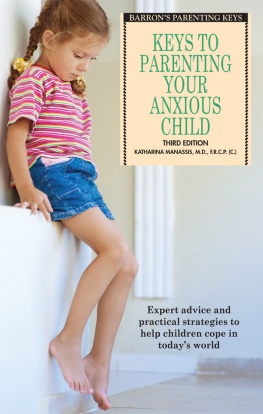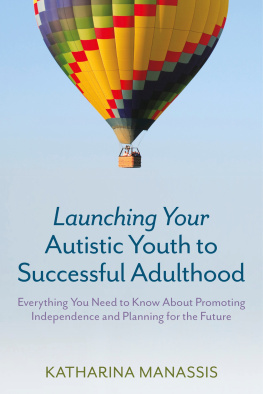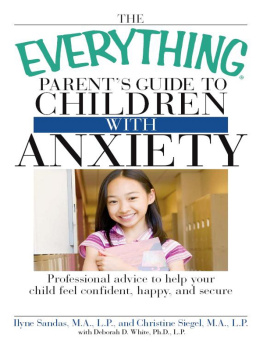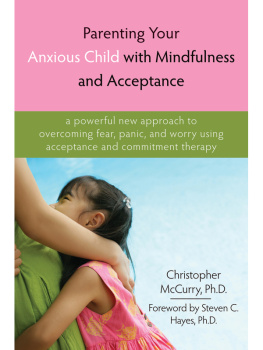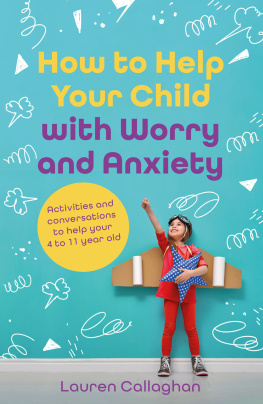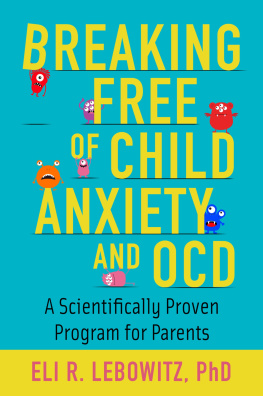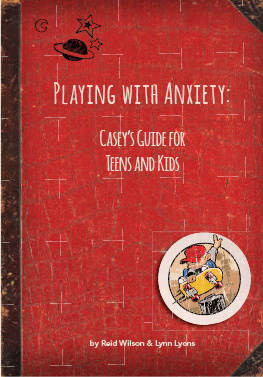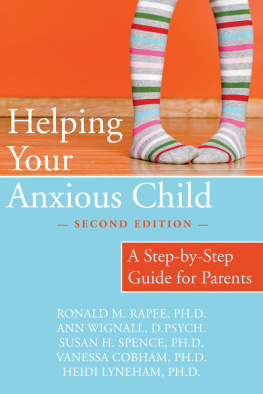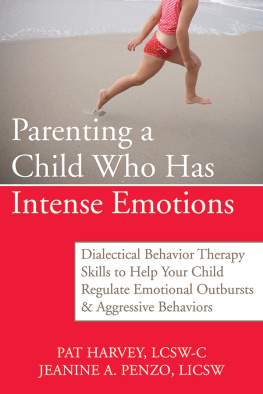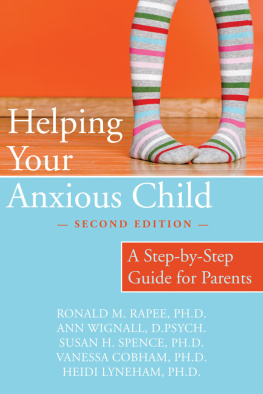
Cover photo by Shutterstock.
Copyright 2015, 2008, 1996 by Barrons Educational Series, Inc.
All rights reserved.
No part of this book may be reproduced in any form, by photostat, microfilm, xerography, or any other means, or incorporated into any information retrieval system, electronic or mechanical, without the written permission of the copyright owner.
All inquiries should be addressed to:
Barrons Educational Series, Inc.
250 Wireless Boulevard Hauppauge, New York 11788
www.barronseduc.com
eISBN: 978-1-4380-6722-3
C hildhood anxieties are not as transient or harmless as once believed. Anxious children are distressed by their inability to cope as well as other children do, which can have long-term effects on their confidence and self-esteem. Parents who try to help these children are often told they are overreacting or overprotective, especially if their children are not misbehaving or otherwise drawing attention to themselves. Even some professionals may be unfamiliar with childhood anxieties, resulting in incorrect diagnoses and ineffective treatments.
Providing relevant information for parents of anxious children is a unique challenge. Books on behavior management can be helpful, but the strategies described may have to be modified for the anxious child. Books written about anxiety disorders in adults can also provide useful information, but the principles they describe are clearly designed for adults and may be difficult to apply to young children. As a child psychiatrist, I have found myself repeatedly referring parents to both of these sources of information, only to watch them struggle to discern what is relevant to their child. This book was written to ease that struggle. It will be useful for parents, teachers, and all those who work with anxious or sensitive children and their families.
Anxious children can be helped to overcome their difficulties, and parents are an important part of the solution. The principles of helping children cope with anxiety are simple and require no previous training. Furthermore, nobody is more of an expert on your child than you. Studies have shown that when anxious children are treated by professionals without parental involvement, children have difficulty applying the coping skills they learn to situations outside the therapists office. Also, if your child is affected only mildly by anxiety, getting help with the problem at home may feel more natural and less embarrassing for the child than being dragged off to a psychiatrist or psychologist. Keep in mind too that most therapists will spend 1 or 2 hours per week with your child. A teacher will spend perhaps 30 hours per week. That leaves 136 hours for you, the parents! What you do with that time can make a big difference to your child.
For some parents, this last sentence raises a disturbing question: Are you implying that its the parents fault if the child is anxious? The answer is a definite no. A number of factors can contribute to anxiety or alleviate it, and many of these factors have nothing to do with your child-rearing practices. Furthermore, trying to blame someone for the problem rarely helps to solve it. In the past, many treatments for anxious children have been unsuccessful precisely because professionals have tended to see parents as part of the problem rather than part of the solution.
This book is divided into short chapters called Keys. It can be used in several ways. Some of you will read it cover to cover, others will zero in immediately on the Key pertaining to their child, and still others will flip back and forth from one topic of interest to another. Below is a brief description of how the book is organized, so you can decide for yourself how to use it best.
Part One describes childhood anxieties and how they develop. Part Two describes the techniques parents can use to help their children cope with anxiety, including ways of selecting techniques and combining them. Part Three describes some specific anxiety-related problems commonly observed in children and ways to deal with each using the techniques described earlier. Although the book is intended mainly for parents of anxious children of about 7 to 12 years, a Key on parenting older and younger anxious children is included (). When there is a corresponding psychiatric disorder (usually, the most severe form of that particular problem), its name is provided in that Key as well. Finally, Part Four describes how to help your child in relation to the family, the school, professionals, and the larger community.
In each Key, information about the topic is discussed, one or more examples are provided, and key points are listed. Answers to some common questions asked by parents are also provided. All names and some details have been altered to protect confidentiality.
Treat the techniques described like a set of tools, rather than a recipe. You may not be able to match your childs behavior exactly to one particular Key. Even if you can, your child may not respond exactly like the child described in the Key does. Therefore, try to keep an open mind about a variety of techniques. If one doesnt work for your child, another may. Also, remember that your child is continually growing and developing. What works today may not work next month or next year, and vice versa. The more tools at your disposal, the better the chances of helping your child cope with a variety of challenges over time.
This book is written for parents of all children who have some sensitivity, whether mild, moderate, or extreme. If your child is only mildly affected (as shown by brief and only mildly disabling episodes of anxiety), the advice given in this book may be all you need to help your child. If your child is more seriously affected, this book should offer a useful adjunct to any professional treatment you may seek. At the very least, it will make you a more knowledgeable consumer of mental health services for your anxious child.
Acknowledgments
The belief that parents can find helpful solutions for their anxious children is based on another important fact: Parents helped in writing this book! In developing the Anxiety Disorders Clinic at our hospital, I have had the privilege of working with several hundred families of anxious children. Many of the parents from these families participated in a group program to learn how to better help their children cope with anxiety. These parents not only helped each other in the groups but also helped me by reading earlier versions of this book and making suggestions for its improvement. The team of clinicians I work with has also been invaluable in helping me learn more about helping anxious children and their families.

Jason was a bright six year old with an irresistible grin who enjoyed soccer and swimming, played well with his brother (for the most part), and was already beating his father at some computer games. His mother appreciated Jasons willingness to help around the house and commented on his gentle manner with pets. She had only one concern about her son: his unwillingness to try anything new. New jeans would feel funny, unfamiliar music would get on his nerves, and a new flavor of Jell-O was guaranteed to receive the verdict Ick! When introduced to potential playmates, Jason ignored them or only occasionally glanced in their direction. It took him a long time to warm up. Knowing her son, Jasons mother made sure he met his firstgrade teacher well before the school year started. Still, there were some tearful mornings in September before he adjusted.
Next page
